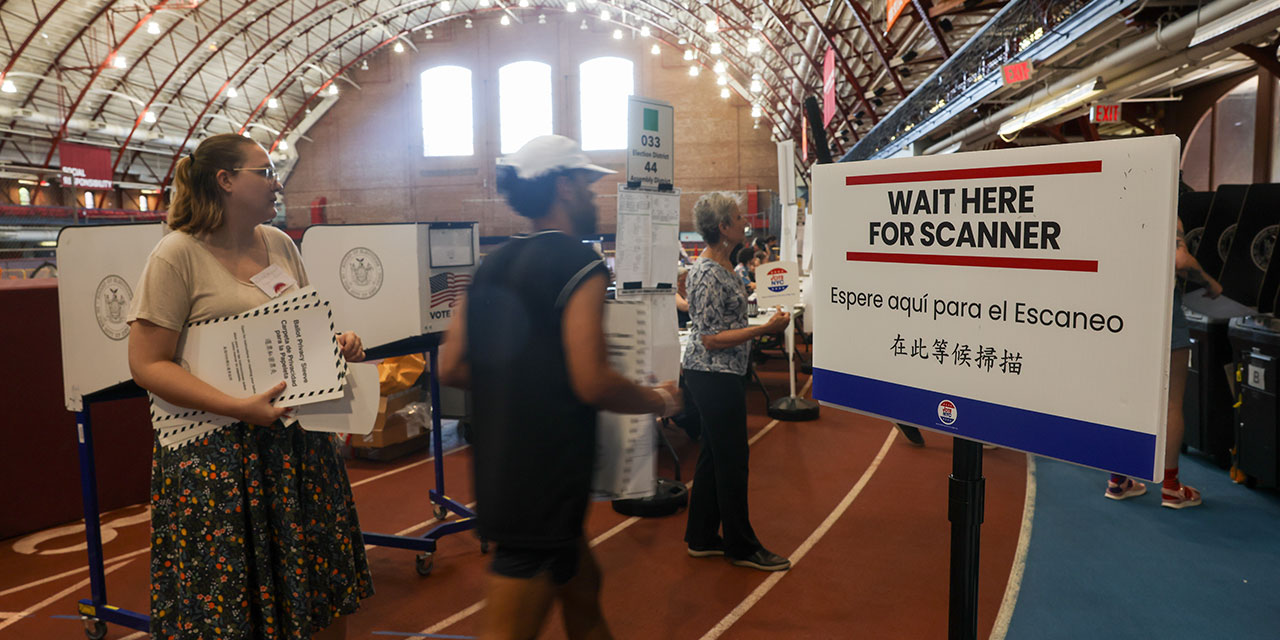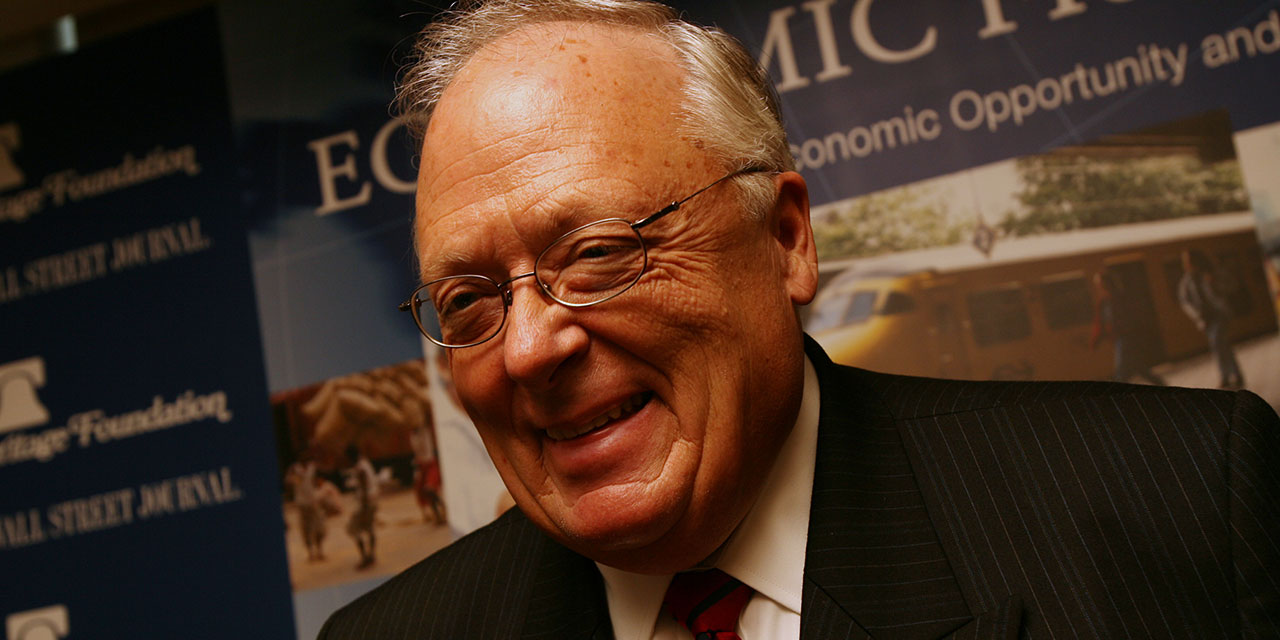Any recent history of the Democratic Party has to reckon with the national conventions that have taken place in Chicago. In 1968, tumultuous New Left demonstrations augured the unraveling of the New Deal and Great Society coalitions. The 1996 Chicago DNC ratified a new political dispensation: Bill Clinton’s “third way” politics that repositioned the Democratic Party as the tribune of the managerial elite.
Democrats gather in Chicago this week poised somewhere between unraveling and ratification. Beset by unhappiness at home and chaos abroad, the Biden presidency is in its final stages. For Kamala Harris’s vaporous campaign, the DNC is a vital opportunity to help define the candidate as more than simply “not Biden.”
Finally, a reason to check your email.
Sign up for our free newsletter today.
In one of history’s ironic echoes of 1968, Harris bears some resemblance to Hubert Humphrey: heading into Chicago as the vice president to an incumbent who decided not to run for reelection. (Humphrey narrowly lost in November that year, so you won’t see Democrats drawing this parallel too often.) Harris has tried to avoid Humphrey’s fate by becoming, in a phrase, unburdened by what has been—distancing herself from both Biden’s record and her own past policy positions.
Since many Americans are dissatisfied with the country's direction, Harris has tried to position herself as the “change” candidate, a challenging task when you’re a sitting vice president. American elections are often a referendum on the incumbent party, but Harris’s campaign strategy seems instead to try to make the election a referendum on Donald Trump. Attacks on the former president dominate the campaign’s rapid-response social media account. From invocations of “we’re not going back” to the “new way forward” tagline, Harris’s messaging on the campaign trail has burnished the “change” theme, which is likely to figure prominently at the DNC.
Even the succession of Democratic presidents speaking at the convention seems designed to distance Harris from Biden. As a kind of hand-off moment, the current president is set to speak on Monday night, as the convention begins. He will be followed by Barack Obama on Tuesday night and on Wednesday by Bill Clinton, who will reportedly introduce Harris’s running mate, Minnesota governor Tim Walz. While Clinton helped engineer the modern Democratic Party by winning over the wealthy and highly educated, he also retained significant appeal to working-class Americans and was the last Democratic presidential candidate to win Kentucky and West Virginia.
What exactly is Harris’s “new way forward?” So far, she has not offered a concrete answer. She has focused, to quote Walz at their first joint campaign rally, on “bringing back the joy”—not the policy substance. In her first policy forays, Harris has tried to outmaneuver Trump from a left-populist direction by targeting high costs and corporate concentration. She has proposed capping the costs of prescription drugs, eliminating medical debt, and addressing mergers in the health-care sector. Her housing plan includes subsidies of up to $25,000 for first-time homebuyers and a potential cap on annual rent increases. Harris’s proposal to combat “price gouging” in the grocery sector could also have a corporate-concentration component. The Elizabeth Warren-championed Price Gouging Prevention Act adds more regulatory burdens for large grocery chains, while exempting smaller stores.
Despite claims about “not going back,” the Harris campaign seems to be repurposing the 2010/2012 playbook Democrats used against Tea Party Republicans. On the stump, she and Walz accuse Trump of wanting to cut taxes for the wealthy and corporations, while purportedly trying to “gut Social Security and Medicare.” (Trump has actually frustrated some budget hawks by ruling out cuts to those entitlements.) Continuing her price-centric message, Harris has also said that Trump’s proposal to boost tariffs would raise the costs of household goods for American families.
Harris may build out this message at the DNC. Of course, the strategy has pitfalls. Biden has extended many of Trump’s tariffs against goods from China. Does Harris want to get rid of those tariffs, too? If not, why not? Many of Harris’s proposals seem more like campaign gestures than actionable policies. Conventions aren’t designed to answer such questions, but they will have to be addressed at some point.
Polling released over the weekend shows both the opportunities and risks facing Harris. A CBS poll found that voters don’t yet have a baked-in opinion of her; only 64 percent said that they knew what she stood for. A Washington Post poll revealed that a significant portion of voters did not hold Harris significantly responsible for the Biden administration’s policies. This means that Harris has some room to define herself. The polls give Harris the edge on many personal issues, but on policy the picture is more muddled. Perhaps most troubling for her candidacy, CBS found that a plurality of voters thought that prices and border crossings would go up if she were elected, while a plurality said that Trump’s election would reduce both.
Democratic enthusiasm has soared since Biden’s withdrawal. Many battleground states have shifted from a Trump advantage to a coin-flip, and Democrats are also more optimistic about their chances down ballot. The DNC could be an opportunity to build on this momentum, but the gathering of pro-Palestine, anti-Israel activists in Chicago might pose a threat to Harris’s rebranding campaign. If fierce demonstrations over Israel in 2024 echo the melee of Chicago 1968, Harris’s politics of “joy” could be overthrown by the spectacle of chaos that dragged down Biden. (In fact, Humphrey talked about the “politics of joy,” too.)
The parade of presidents at this year’s DNC illustrates Democrats’ recent successes in attaining the White House and also testifies to the party’s continuity. With the exception of Trump himself, it has been many years since a former president spoke in person at a Republican National Convention. As the party of credentialed technocrats, Democrats have built a powerful machine for ensuring internal consensus that reaches from one nominee to the next. It crowned Biden, discarded him, and has now elevated Harris. Even as the DNC celebrates Harris’s “new way forward,” the machine hums along.
Photo by ANDREW CABALLERO-REYNOLDS/AFP via Getty Images




